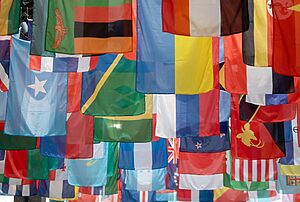In brief
- Many Kiwis say the Labour Party and National Party are more similar than different.
- Perhaps that was true for some elections, but this time there is a stark choice between the two.
- Differences include: co-governance, wokism, workers’ rights, degree of central control, amount of government and law and order.
- Also, the minor parties aligned with each major party are going to pull them further apart.
Co-governance
A huge policy difference, between the parties, is their respective positions on co-governance. Some influence of co-governance permeates much of what Labour does.
Labour have neither explained it nor campaigned openly on it, but Prime Minister Chris Hipkins pushes the pro co-governance narrative that it’s ‘nothing to be afraid of’.
National party leader Chris Luxon has said the principal objection to co-governance is because New Zealand has one government and everyone is equal. Luxon has promised to repeal major Labour initiatives like Three Waters, RMA 2.0, and the separate Maori health authority.
Luxon has made clear that National is generally okay with a limited form of the concept where iwi work alongside local and central governments to manage assets such as national parks and rivers.
Where National’s comfort with co-governance stops, for instance, with local government, is not clear.
The success of existing co-government arrangements can be debated.
There is no question race-based policies favouring Māori will continue to be rapidly advanced under a Labour-led government.

Let’s look at Labour Party’s position on their historical values?
Hipkins acknowledged Labour has strayed considerably from its traditional values when he did his so-called policy bonfire, after taking over from former Prime Minister Jacinda Ardern. This was to rally the masses, with what he dubbed “bread and butter issues”. This includes what he said would be “a laser focus” on back to basics approaches to the cost of living and crime.
Government benefits and the rights of the workers are also very important and are historical Labour party values. Labour is no doubt more pro-worker than National, but the question of what can be sustained in the long term has to be weighed.
Historically, Labour is more in favour of “big government” and that continues, but on the more extreme side this time. As for central control, regardless of how it may have been in the past, certainly Labour is more that way inclined, than National, this time.
On the issue of the environment, they are both committed to the same general goals but have different ideas of how to achieve it.
Labour has been soft on crime but recently says they are going to change that.
There is also the issue of voters deciding which party can best achieve their stated goals.
You may like some Labour policies, but know they are going to come with a generous side portion of wokism and co-governance
The race based co-governance policies discussed above could also be said to be woke. This is because the core of them is often just far-left values of promoting equal outcomes (as opposed to equal opportunity), albeit perhaps dressed up with Treaty arguments.
The woke generally embrace socialist progressive values. They value identity politics and “social justice”, meaning the pursuit of very hard to achieve “equality of outcomes”, to such an extent that they believe it justifies dividing societal groups along race and gender.
The woke dogma supports transgender rights over the rights of biological women in sports and private spaces. It also supports aligning the education system to support their narrative.
The minor parties
The natural supporting parties for both National and Labour, in this election, are going to pull them more right and left, respectively.



















